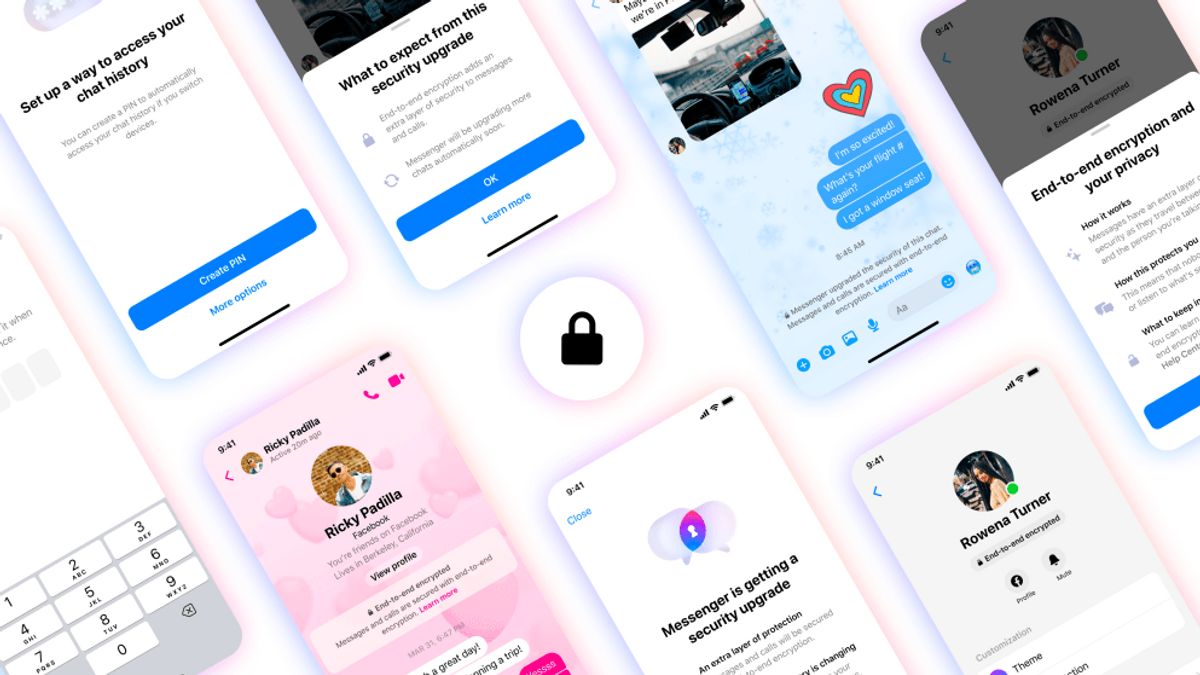JAKARTA - Meta has again extended testing of its new security feature end-to-end encryption (E2EE), which it claims will be rolled out to all Messenger users later this year.
"Starting today, the chats of millions of other people on Messenger will be upgraded to stronger encryption standards as part of our ongoing E2EE testing," Meta said in its official statement, quoted Wednesday, August 23.
"We remain on track to roll out default E2EE for one-to-one friends and family chats on Messenger later this year."
The E2EE feature will keep the user's conversations safe from eavesdropping and interception in transit. The message is then protected using public key cryptography.
Basically, all messages are converted into a code stack as soon as they leave the device which will be decrypted when they reach the receiving device.
Because, the key is only stored on the two devices that exchange messages. In fact, the application owner's Meta cannot read the Messenger text that passes through its server.
The company first started testing the security feature in August 2022, then expanded to some Messenger users again in January 2023 while adding more features to the encrypted chats, compiled from Slashgear.
However, enabling E2EE is unlikely to be easy and it took Meta years to make that happen.
"We needed to not only shift to a new server architecture, but also rewrite our codebase to work across a number of different devices, not just servers," said Meta.
"As we developed E2EE, we had to rebuild more than 100 features in this client-centric way," he continued.
اقرأ أيضا:
Meta explains that one of them is remaking Messenger so that users can easily share external links such as YouTube videos.
In the old model, the server would go and fetch that information from YouTube, and show the video image as a preview.
However, it may sometimes take a few seconds to load. Now on E2EE chat, the mobile app will go directly to YouTube and users can get a preview.
Likewise, when the user presses send, the application will encrypt the entire package and send it to the recipient. Lastly, Meta also tested options for managing their message history, such as setting up a PIN.
"To maintain E2EE with this PIN approach, we are also building a new infrastructure Hardware Security Module (HSM)," said Meta.
The English, Chinese, Japanese, Arabic, and French versions are automatically generated by the AI. So there may still be inaccuracies in translating, please always see Indonesian as our main language. (system supported by DigitalSiber.id)















